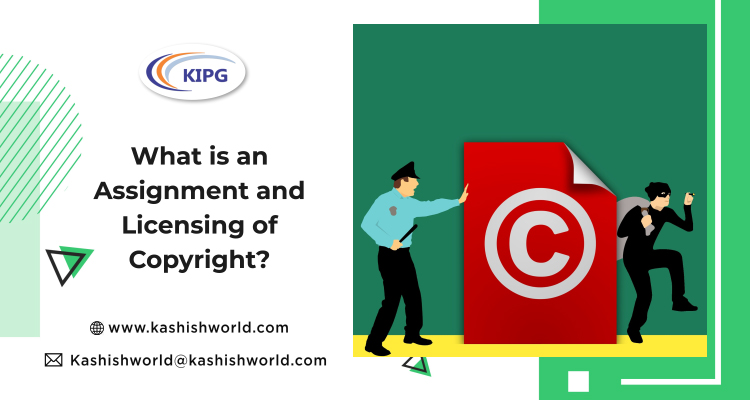
What is an Assignment of Copyright?
An assignment is, in spirit, a transfer of ownership, even if it is partial. The copyright owner in an existing work or the future owner of the copyright in a further work may assign to any person the copyright either wholly or partially, either generally or subject to limitation, either for the whole of copyright or any part thereof. In case the assignment of copyright is for any future work, the assignment will take effect only when the work is in an expressed form and not just an idea.
No one has the right to copy, reproduce, sell, or publish an original work without the permission of the creator. It means that only the owner of the copyright can transfer the ownership of the copyright to a third party. Another important thing to note is that with the assignment of a copyright, the assignee shall also enjoy all the rights related to the copyright of the assigned work.
Copyright is a bundle of rights and can be exploited in several ways independently from each other. Each work has various rights, such as theatrical rights, distribution rights, rental rights, broadcasting rights, rights related to adoption and translation, rights to prepare derivative works, and so on, each of which can be exploited separately. These rights can be disjointedly assigned for a limited term or perpetually.
An assignment has two objectives:
- Where an assignee is concerned, it confers on him the right of exploitation of work for a specified period in the specified territory; and;
- For the assignor, it confers on him the right to receive a royalty on the work assigned.
Mode of Assignment of Copyright
The owner of the copyright in the existing or future work may assign it to any person. It can be assigned either wholly or partially and with or without limitation on the whole or any part of the copyright. Assignment of copyright in any work shall not be valid unless it is in writing and signed by the assignor or by his authorized agent. Oral assignment of copyright is usually neither permissible nor valid. It shall identify the work and specify the rights assigned, the duration, the territorial extent of such assignment, and the amount of royalty payable to the author.
Difference between Assignment and Licensing of Copyright
Copyright license and assignment of copyright are two dissimilar terms that cannot be used interchangeably. Each of them is different in its own way. A license provides approval of an act, and without it, the authorization would amount to infringement. Licensing usually involves authorizing some of the rights out of many. It can either be exclusive or non-exclusive. In the case of assignment, it includes the disposal of the copyright, which in simple terms means the assignor assigns the copyright to another person or the transfer of ownership of the copyright to some other person, whereas in the case of a license, only some Intellectual Property (IP) is transferred and the ownership is not transferred to the licensee. A license does not confer any right to the licensee against a third party or licensor, but an exclusive licensee has substantial rights against the licensor and even a right to sue the licensor.
A licensee also has the right to make amendments provided that his license does not restrict that right. In case there is a failure in paying the royalties, the licensor can revoke the license. When it comes to the assignment, the same is not possible. However, if there is anything harsh that can affect the author, it may lead to revocation in the event of a complaint made to the copyright board.
A copyright license, unlike a copyright assignment, needs to be in writing. It can be oral or implied after considering all the facts and circumstances relating to the transaction between the owner of the copyright and the licensee. Thus, if an individual who is the owner of a copyrighted work thinks about assigning the copyright, he can consider licensing his copyright instead of assigning it. It would help in retaining ownership, thereby licensing only certain rights to another party.
Essential Features of a Copyright Assignment Agreement
- The assignment must specify the amount of copyright. The creator shall not assign or waive the right to receive royalties to be shared on an equal basis with the assignee of copyright, subject to certain conditions.
- The ownership may be assigned either wholly or partially.
- The assignment should also specify the duration.
- The territorial extent of such assignment should be specified.
- The assignment shall be subject to revision, extension, or termination on terms mutually agreed upon by the parties.
- The creator is entitled to subsequent royalties in the course of future exploitation of a work.
- The assignee has the rights of translation, abridgment, adaptation, and dramatic and filmmaking in the work after obtaining the rights via assignment deed.
The main objective of the assignment process is to give financial and distribution benefits to the original work. Copyright assignment can prove to be a necessity in this world as it may lead to enhancing the potential of the original work by reaching several individuals as they may add their creativity to the original work. However, the practicality of copyright assignment has been controversial on several occasions due to the increasing number of Copyright Infringement cases.

